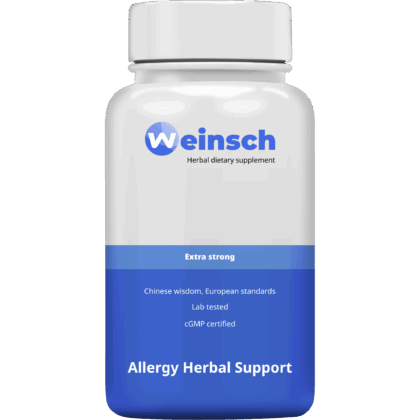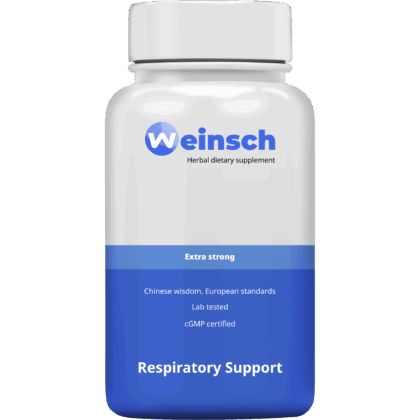Xin Yi Hua (Magnolia Flower) is a warm, aromatic herb in Traditional Chinese Medicine (TCM) best known for its ability to disperse wind-cold and open the nasal passages. It is derived from the flower buds of Magnolia biondii, Magnolia denudata, or Magnolia liliflora and is a key herb for treating nasal congestion, sinus headaches, and loss of smell caused by wind-cold or wind-heat. Xin Yi Hua works by unblocking the nasal passages, reducing inflammation, and improving airflow, making it a primary choice for sinusitis, rhinitis, and allergic nasal conditions.
Functions & Benefits
Dispels Wind-Cold and Opens the Nasal PassagesEffectively relieves nasal congestion, sinus pressure, and runny nose due to wind-cold invasion.
Relieves Sinus Headache and Facial PainReduces swelling in the nasal passages and sinuses, alleviating pressure-related headaches and facial discomfort.
Restores the Sense of SmellHelps regain smell and taste in cases of nasal blockage or prolonged sinus inflammation.
Suitable for Seasonal Allergies and Chronic RhinitisUsed in formulas to address nasal congestion and sneezing in allergic rhinitis and hay fever.
Indications (Who Can Benefit from It?)✔ Individuals with nasal congestion, sinus pain, or runny nose.✔ People suffering from seasonal allergies or chronic rhinitis.✔ Those with loss of smell due to prolonged nasal blockage.✔ Patients with sinus headaches caused by wind-cold or wind-heat.
Tongue & Pulse Diagnosis in TCMTongue: Thin white coating in wind-cold; yellow coating in wind-heat nasal conditions.Pulse: Floating and tight in wind-cold; floating and rapid in wind-heat.
Related TCM PatternsWind-Cold Obstructing the Nasal Passages – Causes nasal congestion, clear discharge, and sinus headache.Wind-Heat Invading the Lungs – Leads to yellow nasal discharge, headache, and inflamed nasal passages.Allergic Rhinitis – Seasonal nasal blockage, sneezing, and watery eyes triggered by wind invasion.
Clinical Applications (For Reference Only)Acute Sinusitis – Relieves blockage, pain, and nasal discharge.Allergic Rhinitis – Reduces sneezing, congestion, and irritation.Loss of Smell – Restores nasal airflow and olfactory function.Common Cold with Nasal Congestion – Opens nasal passages for easier breathing.
Common Herbal Formulas with Xin Yi HuaOften combined with Bai Zhi and Cang Er Zi in formulas like Cang Er Zi San for sinus and nasal conditions.
Precautions & ContraindicationsAvoid use in cases of Yin deficiency with heat signs.Use with caution during pregnancy.Inhalation of the raw herb’s fine hairs may cause throat irritation—best used in prepared form.
Lifestyle & Dietary Recommendations✔ Drink warm teas with ginger or peppermint to help open nasal passages.✔ Avoid cold, raw, and dairy-heavy foods that increase mucus production.✔ Use steam inhalation with aromatic herbs for nasal relief.✔ Protect the face and head from wind exposure during allergy season.
ConclusionXin Yi Hua (Magnolia Flower) is a warming, aromatic herb in TCM that disperses wind, opens nasal passages, and relieves sinus headaches. It is a key ingredient in formulas for nasal congestion, allergic rhinitis, and sinusitis, offering effective relief from both acute and chronic nasal conditions.
Certified ingredients
Free shipping from €49.95
Response within 24 hours
Certified ingredients
Free shipping from €49.95
Response within 24 hours


